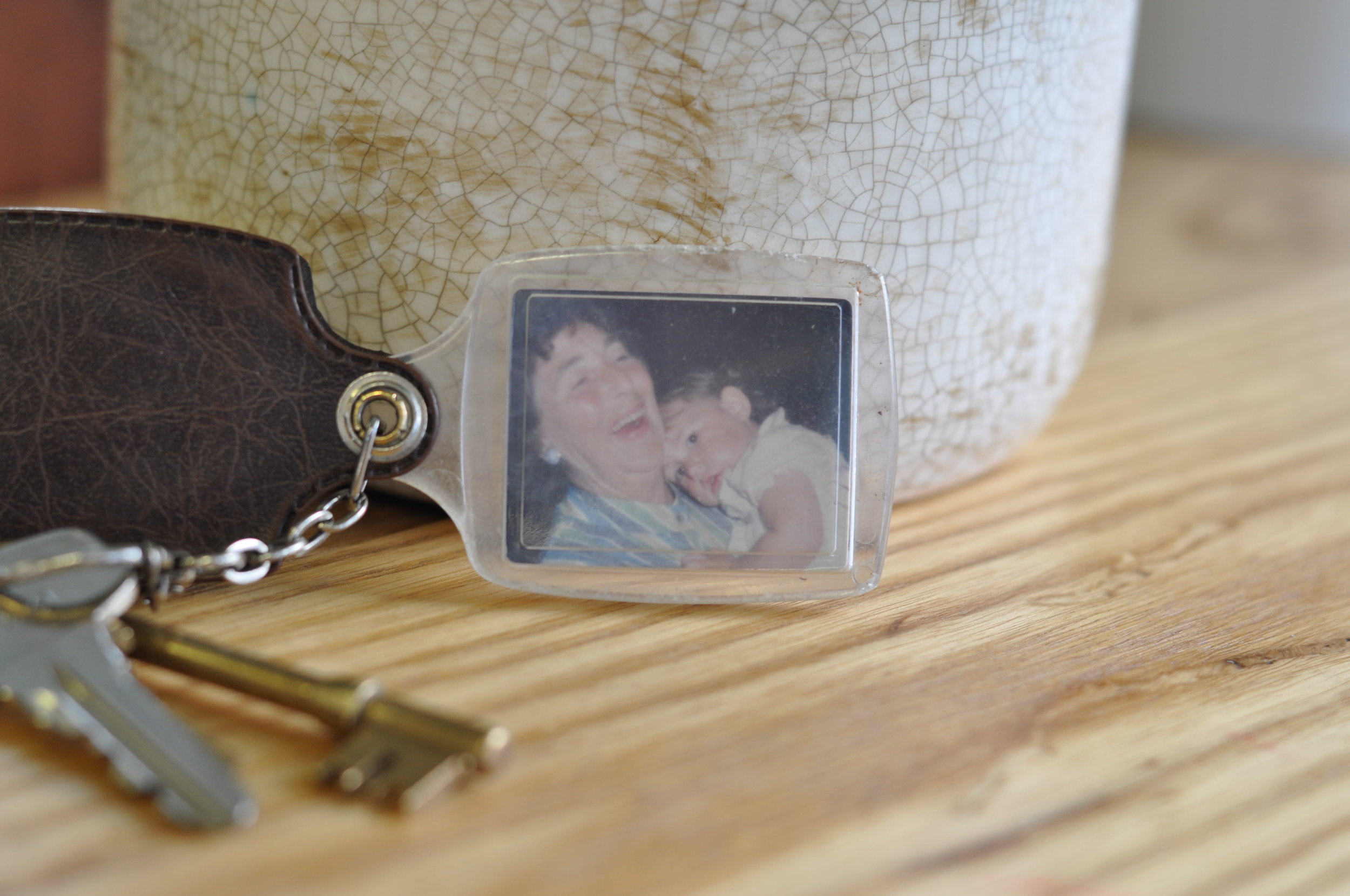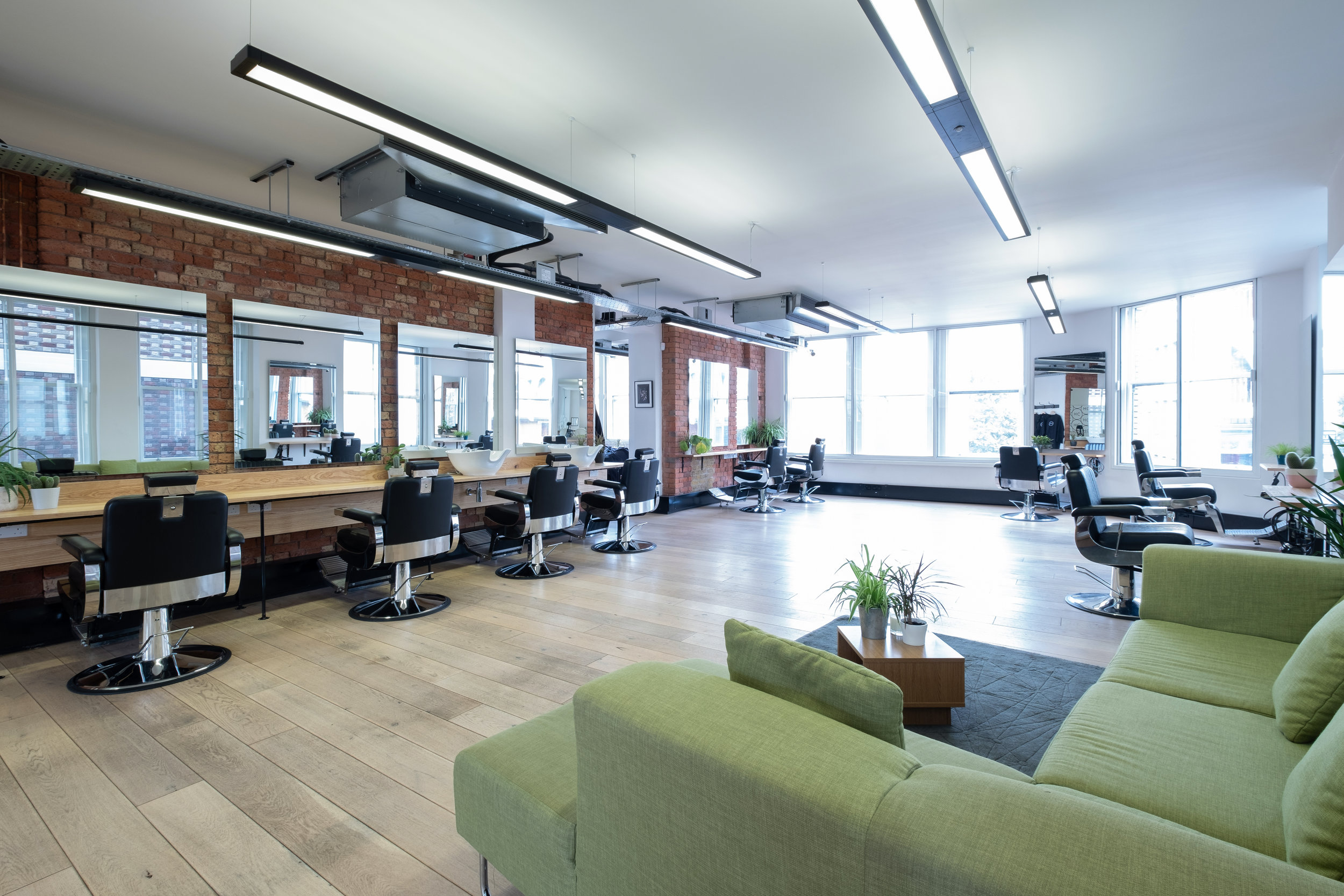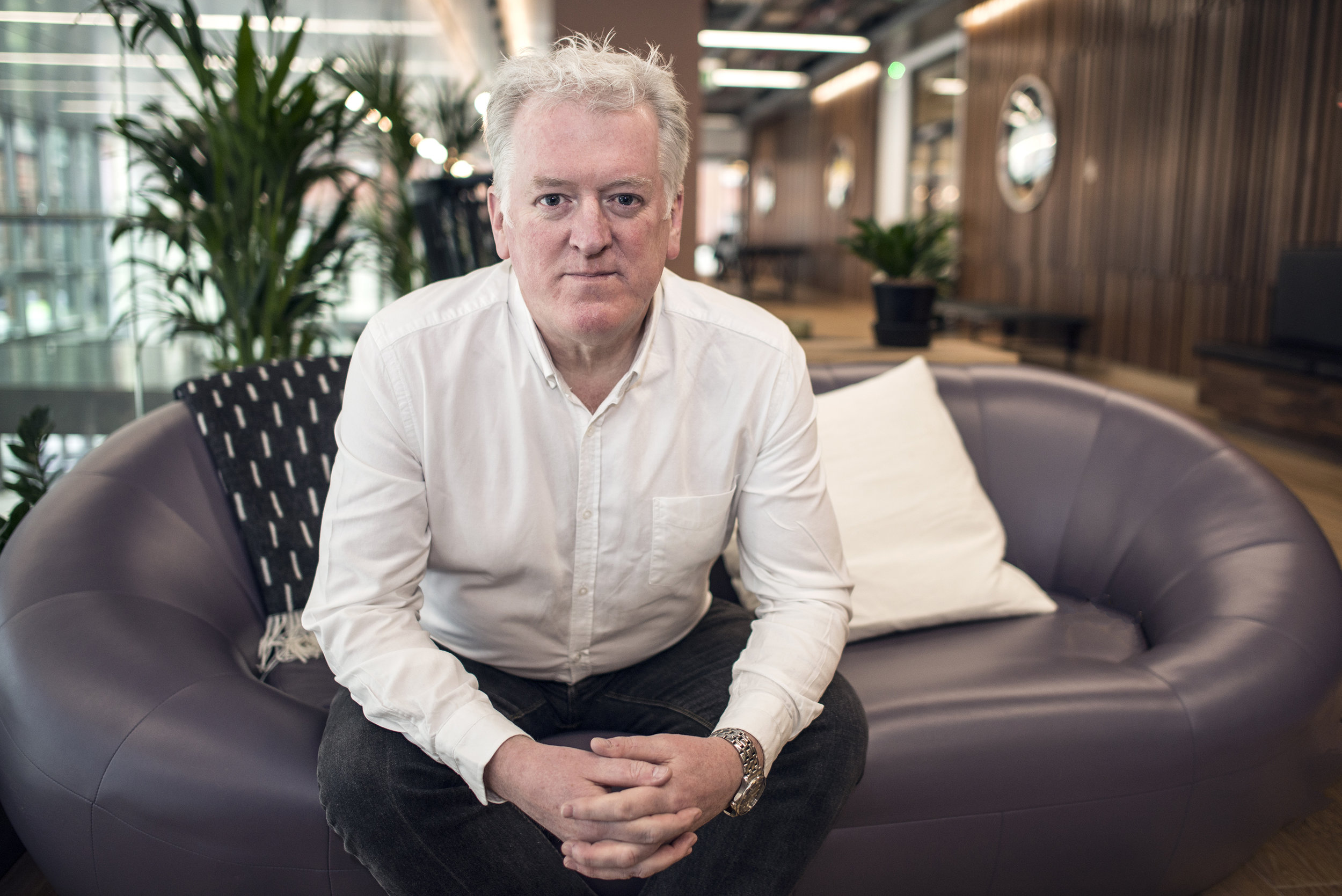Lacey Hunter-Felton, Founder of Hunter Collective
Hairdresser Lacey saw an opportunity to build a space for beauty and fashion people wanting to be independent and work flexibly. Hunter Collective is an incubator for the mums who still want to work and the next generation of tastemakers who want to forge their own path. We caught up with her on why the co-working salon studio and event space is filling a dying need for change.
“If I can give women flexibility and independence through the business, I am doing what I set out to do. And even if it’s helping just me and one more woman, Hunter Collective is giving us another option.”
Did you have a female role model or someone you admired as a kid?
Very much so. From a young age I was surrounded by strong female cheerleaders throughout the generations and into my adulthood. My mother, grandmother, friends, my hairdresser, Cheryl, who inspired me as a kid to become a hairdresser. I’ve taken different things from each of them and carried them with me. For me, it’s so important to have strong female influences and keep gathering them. And there’s a couple of my clients too, who are powerful, articulate and beautiful women who have been following my career and invested time in me. When I was mulling over the genesis of Hunter Collective, I realised that they were stepping up and motivating me to do it. And since the birth of the business they haven’t steppedback. For me it’s not a gender thing. The women in my life are strong influencers with my priorities at heart. I’ve expanded my network as an adult and have tried to bring others into it - to inspire back.
A pic of Lacey with her grandmother May Ivy Hunter. She takes the name from her and she symbolises the amazing women who have influenced Lacey’s upbringing.
What led you to start Hunter Collective?
I needed to. I had to. Hunter Collective was born out of waking up and looking around, thinking ‘where do all the women in my industry go?’ It’s crazy but 70% of women drop out of the industry by the time they’re 34 years old. In hairdressing, the strongest influencers are men and they’re usually the owners of the salons, while women are the mentors. In my experience, women were having kids and not coming back. I was working in central London and the chance of having a long career in hair as a woman wasn’t sustainable. I kept in touch with my mentors, who went on to diversify their careers, which was great, but in reality they didn’t have a choice. Classic salon life did not accommodate them and their families.
I definitely learnt from these mentors before deciding to potentially have a baby myself. (Lacey had her baby Gene last year). I thought to myself, ‘if I become pregnant, I can’t wait for these barriers to move as I could be waiting forever.’ Instead, I built my dream of what I wanted for my career and as a mother. I quit my job, feeling very frustrated with the situation. I set about spending two years collecting and building what is Hunter Collective now. I am a creature of consistency and cosmic ordering so it was ultimately fear that put a rocket up my arse.
How do you think your early years have influenced what you're doing today?
My mother raised 3 children on her own. The stability my mum created in a tough situation is a cornerstone that I have replicated for myself. She supported me to become a hairdresser at the age of 16. We couldn’t afford for me to train at Vidal Sassoon London but she encouraged me to learn the skill and do it well. Hairdressing gets a bad rap outside the industry but not everybody can be a hairdresser.
I learnt a skill rather than studying a skill, one which I could use anywhere in the world. This gave me loads of confidence. I moved to London, which was the making of me. I wouldn’t have had the career opportunities, I wouldn’t have met my husband and friends, and built my aspirations of how I would raise my child. London’s vibrant diversity and beautifully complicated way was oxygen for me.
The Hunter Collective space
How do you keep learning more whilst building a business?
Listening. Simple as that - I listen all the time. I’ve made it my job to take every person I work with for coffee and get feedback. I’ve also learnt to say ‘I don’t know’. This was difficult at the beginning but it’s massively rewarding now. I work with interesting, dynamic characters every day and I always ask them to tell me what they’re doing. I have realised that asking for 5 minutes of their time to listen, people will share.
Where do you get your inspiration?
Where to start! My connections from Hunter Collective - our members, my son – are massively inspiring. Through the business, I meet people with diverse careers and backgrounds - that’s inspirational enough. These are the people who I wanted to build Hunter Collective for and help them build their own businesses. And Nico, my co-founder, is inspirational - he took on a major risk doing this. Ultimately, inspiration is people.
“It was ultimately fear that put a rocket up my arse.”
What do you think is missing from businesses in building true diversity?
Awareness. Businesses don’t understand bias. A lot of businesses remain unconscious. Many of us are guilty, including me. I was always conscious of culture and diversity but even I was complacent. Hunter Collective, alone, has proven to me how everyone has a responsibility to take diversity seriously and actively take part in building a diverse society around them. In some parts of our lives we’re just cruising to be happy and support ourselves. But some businesses need a reality check and structure within so that diversity becomes second nature and part of everyday life. We’re not there yet.
What brands are on your radar right now and why?
We’re always looking at brands to partner with and inspire us. They won’t interest me if they don’t back themselves up ethically and sustainably. At Hunter Collective, we build long term relationships with partners so it’s in our culture to work with businesses who celebrate ethnicity and address waste and pollution, which is a big issue in the industry. We’re trying to set an example so we can influence others and create a knock-on effect. We’re quietly encouraged that brands are being more responsible and future-proof.
What have been the essential factors that have enabled you to be an entrepreneur that you'd think you'd struggle without?
The knowledge that it takes a village. I didn’t know what the phrase meant until I needed a village. When s*** gets real you need people around you and a support network cheering you on. I thank my family and husband on a daily business as I couldn’t come to work if my family couldn’t look after my child and I couldn’t have done it without my husband financially supporting me. Their commitment is still high even a year after my son was born. This pushes me forward as I’m determined not to let them down.
The Hunter Collective meeting room
What's your biggest learning so far since starting Hunter Collective?
I have learnt a lot from working with Nico. That everything we want do we’ve got to do ourselves. From the structure and framework of the business, to how it’s run. It’s endless and I’m still learning. I still have confidence wobbles but I know that as long as I keep going, it will get better. Being a hairdresser has given me a good basis for knowing how to treat every meeting with a high level of customer service. And then there’s the stamina. Fourteen hour days standing on my feet has taught me what a hard day’s work feels like.
How has work changed since having a child relatively recently?
It was the best thing that ever happened. I was treading water and not really sure about whether to set up Hunter Collective. In my mind I was an unemployed girl with an idea and I couldn’t do anything with it. When I got pregnant, my mindset changed. I needed to step up and look after my family and future. My son, Gene, was a ticking time bomb – and kicked me into getting some funding and a location. I met Nico when I was already 6 months pregnant and 12 days after the birth, together we signed the lease. By week 3 of Gene being born I was working full time and by week 7 Hunter Collective opened.
If I can give women flexibility and independence through the business, I am doing what I set out to do. And even if it’s just me and one more woman, Hunter Collective is giving us another option.
Who's a woman to watch or someone you admire in 2018?
Well, two that I need to name are my clients and they’ve been quiet pushers for me to grab life. Firstly, Nishma Robb, Marketing Director at Google, who is someone whose career I see getting bigger and bolder. And Emma Sexton has been a massive influence on me. I can only thank her and keep beating her drum. She is the ultimate badass. Emma was one of my first clients and she ignored the fact that I was on gardening leave when I left a former salon and took me for a drink. These are two women who I want to be even more publicly successful so that they can inspire lots more women.
Name the quote you live by
“You have as many hours in the day as Beyonce”, which is on the side of a mug my husband bought me. Otherwise, it has to be “It takes a village”, which I constantly cling to as my guiding prophecy. My husband, Liam, is the best man and he’s been in this 100% with me. I feel that men are often taken for granted these days because equality has shifted. Liam and I both co-parent our son. He’s never told me not to go to work so he can prioritise his work. He has not let me down when I’ve needed to push harder. But beyond my husband, the quote reminds me that I need everyone. It’s not just about having a husband and girls squad around me, it’s about everyone who has a genuine impact on my life. We’re all in it together.
Find out more about this incredible woman’s creation here and follow Hunter Collective on Instagram.












